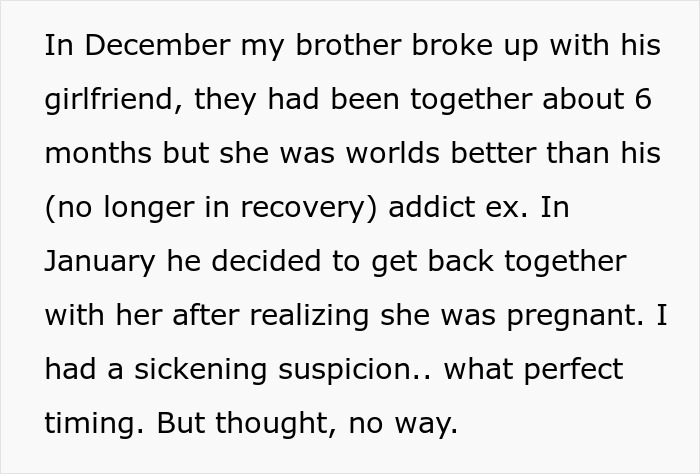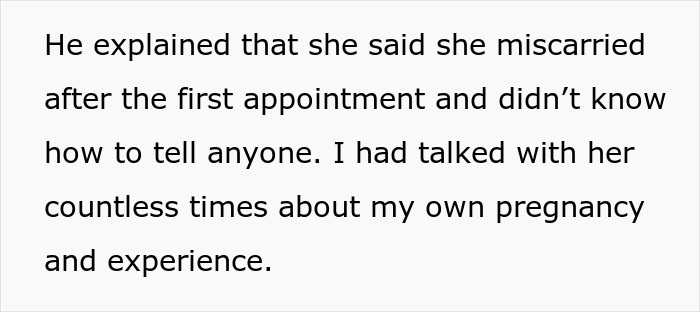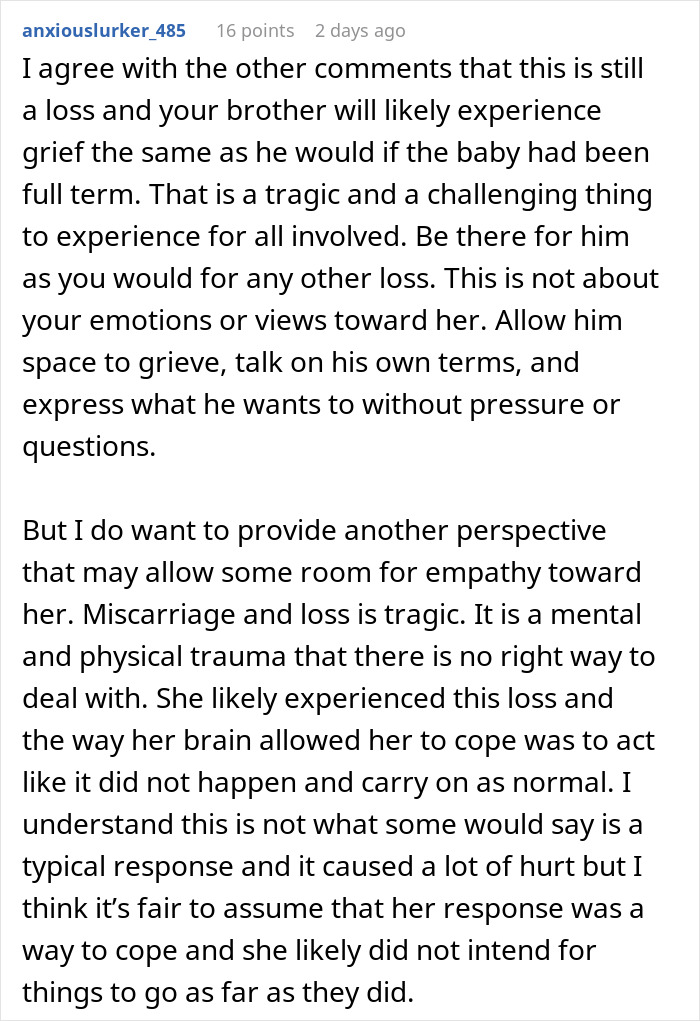Even in the earliest stages of pregnancy, the parents-to-be can’t help but form a connection with their baby. They imagine what their lives will look like after welcoming a little being into the world and losing it seems like something unthinkable. However, on the rare occasions that it happens, it can be beyond devastating, and coping with it looks different for anyone (but is far from simple).
When this woman received the crushing news, instead of sharing it with her partner, she kept quiet about it. She successfully hid the pregnancy loss from him up until the supposed due date. After it passed, she had no other option but to tell the truth, which left everyone crushed.
Scroll down to find the full story and a conversation with perinatal mental health treatment specialist and founder of Shameless Mama Wellness, Marilyn Cross Coleman, LCSW, PMH-C, who kindly agreed to tell us more about faking a pregnancy after pregnancy loss.
Losing a pregnancy can be beyond devastating

Image credits: Amina Filkins / pexels (not the actual photo)
When it happened to this woman, she continued faking the pregnancy without anyone knowing





Image credits: MART PRODUCTION / pexels (not the actual photo)





Image credits: Cameron Casey / pexels (not the actual photo)






Image credits: Comfortable-Spend-41
“Her pregnancy may continue to feel real in her mind”
“Pregnancy loss can leave a great void for a woman, faking that pregnancy then becomes a coping strategy for filling that void,” explains perinatal mental health treatment specialist and founder of Shameless Mama Wellness, Marilyn Cross Coleman, LCSW, PMH-C. “It may take some time for a woman to fully accept that the child in whom she placed her hopes and dreams is no longer with her. Her pregnancy may continue to feel real in her mind.”
A response to a traumatic experience is unique to everyone and might not always seem rational to others. But it’s a natural human reaction to abnormal life experiences and unbearably painful circumstances. “The grief a woman experiences may be complex, and this may make her behavior confusing to others. Denial is often very powerful, and when our mind cannot accept the reality of our circumstance, it simply denies that reality,” says Coleman to Bored Panda.
The denial might also be further fuelled by the shame that follows the loss. “Women often tend to blame themselves when something like this occurs. Partly, this is due to societal pressure and partly due to a need to control their bodies. If they are to blame for what occurred, they can prevent a subsequent loss. This may provide the illusion of control, however it can also lead to shame and guilt.”
So while others might see the illusion of pregnancy as a deception tactic, often it’s not. It’s the psychological consequences of immense trauma, grief, and loss. “It likely represents a woman’s attempts to cope with this internal struggle,” suggests Coleman.
“She needs to hear that her grief is valid, and she has a right to feel all her feelings”
After truth comes out, it’s essential that the woman receive compassion and understanding. “All her feelings, even those that may appear irrational, should be validated with sensitivity to her unique emotional and physical needs. Empathic listening from friends and family is essential. She needs to hear that her grief is valid, and she has a right to feel all her feelings. Everyone will grieve differently. Grief is a unique experience, so asking a woman what she needs and providing it is essential,” explains Coleman. During such a challenging time, she will likely need practical help too, so assisting her with day-to-day tasks can be invaluable.
Seeking out to professionals can be another great step towards healing. ” A therapist can provide a place for a woman to process her trauma and grief without judgment. A professional can help validate her experience and navigate the complex emotions that she may be experiencing. Trauma treatments like Eye Movement Desensitization and Reprocessing (EMDR) can help process her trauma,” suggests the perinatal mental health treatment specialist.
When it comes to the couple’s relationship, both partners have to commit to consistent effort if they wish to move past it together. “The emotional impact of this kind of event can be severe. A woman’s partner may feel betrayed, and there can be a loss of trust. Open communication will be necessary during the healing process. If her partner can process their own feelings about the experience and try to understand the underlying reasons for the deception, the couple can move forward. The behavior was rooted in trauma, grief, loss, shame and possibly the fear of losing the relationship. It’s essential to understand this for both parties to heal.”
Coleman once again emphasizes the complexity of faking a pregnancy. It’s important to understand that such behavior is rooted in pain and suffering. Therefore, the woman needs respect, understanding, validation, empathy and sensitivity to help her heal while going through it all. And judgement will only interfere with the process.
The author posted an update



And shared more information in the comments





The commenters offered words of support to author’s brother

















